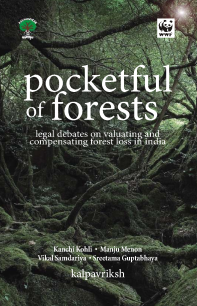Kanchi Kohli
Environmental regulation in India: The need to move beyond procedural lacunae
Posted on 08 Apr, 2016 01:03 PMOne of the tasks that the current government had promised to work on is the fast tracking of the process of appraisal of projects seeking environmental approvals from the Ministry of Environment, Forests and Climate Change. The article titled 'Environmental regulation in India: Moving 'forward' in the old direction' published in th

Inducing vulnerabilities in a fragile landscape: The implications of hydropower development in a seismically active zone - An article in EPW
Posted on 24 Feb, 2012 08:25 PMClose to 30 hydroelectric projects are being planned on the Teesta and its tributaries. Not only is this river an essential part of Lepcha identity and life, but it also flows through a fragile zone. In this article first published in the Economic and Political Weekly (EPW), Kanchi Kohli examines the ramifications of this policy.
A functional Green Tribunal - Article by Kanchi Kohli in mylaw.net
Posted on 12 Jul, 2011 02:08 PMThe Delhi High Court in its order in C.M. No. 15895/2005 in Writ Petition Number 17682/2005 relating to the National Environment Appellate Authority (“the NEAA”) had vehemently said the following.
 Justice (retd.) N. Venkatachala of the Supreme Court headed the NEAA for three years
Justice (retd.) N. Venkatachala of the Supreme Court headed the NEAA for three years
The image above and on article thumbnail is from the website of the Supreme Court of India
“The numerous orders passed by this court in the past three years reflect both the concern of the court and the considerable restraint exercised by it in refraining from proceeding against the concerned officials for disobeying its binding orders. However, the government has failed to take satisfactory steps to address the concern expressed by this court. It has failed to comply with the court's orders and has left it with no choice but to issue further mandatory directions to ensure that the legislative mandate contained in the NEAA Act is not frustrated by executive apathy. The government has to be made accountable in law for its disobedience of the court's orders…”
